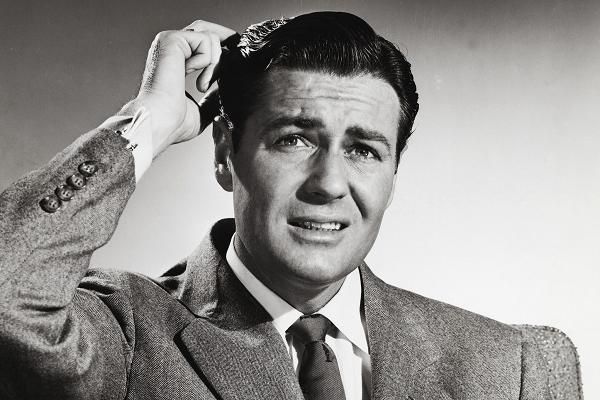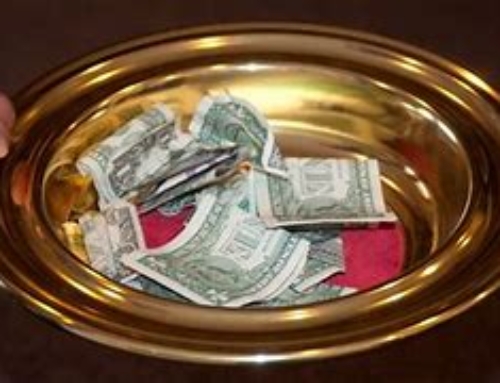I was sent a pre-publication copy of Taylor Marshall’s Infiltration. I read the book with interest, but didn’t discover anything new.
What’s the book about? It “exposes” nefarious influences in the contemporary Catholic Church. Taylor lines up the usual suspects: Freemasons, Modernists, Communists, the Mafia, International bankers etc. etc. These infiltrators have got us in the present bad place. Anyone who has dipped into the websites of the traditionalist movement will be familiar with the mix of conspiracy theories, anti-Vatican II invective, bitter criticism of the Ordinary Form of the Mass and condemnation of every pope since Pius XII combined with slipshod theology, quotes out of context, reliance on rumor, hearsay, apparitions, private revelation and Marian end times prognostications.
It’s all juicy stuff, and I predicted that Taylor would have a best seller on his hands. People love this tabloid fodder and always have. Get deep into church history and you’ll realize that in every age we have not only had corruption and immorality within the church and persecution from without, but we’ve also had prophets of doom, apocalyptic visionaries, conspiracy theorists, purveyors of prophecies, gossips and sensationalists.
Forgive me if I yawn.
Jeffrey Mirus has written a scathing review of Taylor’s book here and Dave Armstrong goes at Taylor with his usual “take no prisoners” tone here.
I’ll leave it to them. I’m not going to write a full review or attack Taylor Marshall or his book. He’s been a friend of mine for a long time. He’s an amazingly versatile and talented writer, a good scholar, a fellow convert priest and a brother.
So instead of arguing against this book or calling the book “stupid” and picking it apart line by line, I’d simply respond by saying “so what”?
You can read the book and make up your own mind about it, but let’s assume, for the sake of this blog post, that everything Taylor says in his book is 100% accurate. The Catholic Church has been infiltrated by a host of nasties from the deepest, darkest corner of hell. Nefarious influences intent on world domination have met in secret to set up a long term plan to bring about a one world government and the takeover of the Catholic Church is crucial to their overall design.
So this is news? The church has always been in conflict with the powers of darkness. Satan has tried to infiltrate the church from the beginning. Judas was his first secret agent, and Jesus assumed this conflict when he said the gates of hell would not prevail against the church. You say there are powerful people who meet together to plan world domination? But this is the way the world works. Rich, powerful people have always met together to plan world domination. That’s what rich, powerful people do. This is not so secret. Wicked men have infiltrated the church and used their influence to pursue lives of pleasure, power and prosperity? This is nothing new. In fact, it’s a rich seam running right through the whole story of salvation. Have you read the Old Testament recently? The papacy is the focus of plots and schemes by secret cabals? The church is fiddled by financiers and undermined by political powers? Why is this news? It has always been so.
Therefore the next question is, “What good does this book do?” I suppose it is worthwhile from time to time to have the corruption, deceit, manipulation and immorality exposed. This is especially important when, for the last fifty or sixty years we have been living in a kind of sentimentalized, churchy la-la land where every priest is Father Fabulous and we go to church to sing about eagles bearing us up and talk about how there was only one set of footprints because that’s where Jesus carried us. We are too prone to view our church through stained glass lenses.
A dose of reality can be healthy. Pointing out the problems can help spiritual warriors identify the enemy. That’s something a book like this can contribute.
Unfortunately, it is much more likely to throw red meat to disgruntled traditionalists. It is more likely to feed our need to blame other people for the world’s problems and forget to criticize ourselves. In other words, conspiracy theories feed self righteousness and our tendency to shift blame to shadowy figures far away. This is not good. Really not good for the soul.
All of this takes place in a much larger context which we should remember:
Mirus brings out a vital point in his review of the book:
The larger cultural truth about modern history is that the Catholic Church is going through a long transition from being one of the pre-eminent institutions of Western culture—with all the attendant personal complacency, ossification, and worldly complicity—to re-engaging the world in terms of Christian mission. It was just this problem that Pope Saint John XXIII called the Second Vatican Council to consider under the heading of “renewal”, and just this transition which Pope Saint Paul VI and Pope Saint John Paul II tried to effect against all odds of quick success.
As a friend of mine put it, “we’re in a sixteenth century situation.” The sixteenth century was a time of enormous and amazing upheaval and transition. Study that century. It is phenomenal. Individuals of genius and madness combined with political and economic turmoil and added to it was a philosophical, theological, demographic and technological perfect storm. The church was in the midst of it and the barque of Peter was tossed about as any ship in the midst of a tempest.
We are in such a state of transition now too, and it is understandable that during such times people become upset and go all apocalyptical. Their world is upset. The borders of the comfort zones have been breached. Something new is about to be born and we’re groaning in labor to give birth.
Conspiracy theories, blaming others and retreating into a little fortress of our own making are classic responses to the threat of overwhelming change.
It’s understandable. This is why I produced my three church history podcast series. Triumphs and Tragedies offers 23 episodes on the history of the church. Characters of the Reformation looks in detail at the sixteenth century and currently John Allen’s Future Church is an analysis of the trends that are sweeping us into the twenty first century and how they will impact the Catholic Church. You can listen to them at BreadBox Media and here in the podcast section of the blog.
Finally, when faced with conspiracy theorists I can’t help asking the question, “So what are you going to do about it?” Yes. Yes. I know it sounds patronizing, but it’s an honest question: “So what are you going to do about it?”
Again, let’s assume all the conspiracy theories are totally true. “What are you going to do about it?”
This is where Taylor gets practical. In the last section of the book he lays out a range of options, and in the end he says what I’ve said numerous times on this blog: “Get real. Get local. Do what you can with what you have where you are.” Put up a tacky poster that says “Bloom where you’re planted.” If you have the power to change something. Do it. If not, endure it. Read a book about dictator popes or lost shepherds and how the Catholic church is going down the drain if you find it entertaining.
Go ahead and complain and vent if you must, but then get over it. Build a life rooted in God. Build a family. Build a parish. Build a business. Build a school.
Don’t fret about things you can do nothing about.
Life is short and eternity is long…..
…this is an exciting time for the church and the world. Pray more, roll up your sleeves and get busy serving God and serving others.







I was on the “launch team” for Infiltration, meaning I also got an advanced copy. It was interesting to say the least. Many parts of it disturbed me, though as someone with an advanced degree in history and an academic publication that underwent peer review, the most bothersome thing was the lack of citations and the gratuitous speculations. However, I do have a question Fr. Longenecker; I reviewed his book like he requested of those on his “launch team,” however, my written review was candid and I only gave it two stars, but should I have done this? Should I have written an honest review or should I have simply forgone posting one? I’m not necessarily asking as part of a moral calculus, but in terms of tactfulness and politeness.
I cannot speak for another. In these matters one must try to be as honest as possible. However, I am aware that there are so many other factors in play. I am regularly asked to review books or give blurbs or recommendations. One does not want to speak badly about someone else’s work. It can hurt their feelings. Then one is aware that it rarely pays to write or speak badly of another. Then one might feel the whole game is a case of mutual admiration. One has to tiptoe through this minefield–being as honest as possible, while not offending and being tactful without being obsequious. Sometimes it is better to remain silent.
I agree. I read it as well and as a historian it left me cold. I too thought so what..the church was always under seige by its very nature it goes against the stream. We are called to be faithful not to try to run back to some pure time..in our minds. Remember ad Fontes…there is but one source. Like you..I will not attack Taylor Marshall as I hold him in high esteem
When I heard about Taylor Marshall’s new book, I was literally thinking I wonder if Fr Dwight will read it! Thank you for this very fair review, your opinion means a lot.
Haven’t read book, but did see advertisment. And was intrigued, though not enough to pre-order.
Not sure that saying “So what?” about the book is an appropriate review. Dismissive and indifferent, which is saying this book doesn’t matter.
Yes, we all know the Church has been attacked throughout its long history, but this book appears to approach the current attack as a well-planned infiltration.
Could be good information for those worried about the current state of the Church and is meant for an audience who is not interested in citations and footnotes.
My full response is “So what…are you going to do about it?” I acknowledge that there may be some good to the book in raising awareness, but the question still remains…so what are you going to do about it? Are you going to sit around and complain and blame others or will you get up and do what you can do with what you have where you are?
Thank you, Father, for your thoughtful and charitable review of Infiltration. As a convert from the Anglican Church, naturally I am drawn to others who have converted. I appreciate Dr. Marshal’s passion for the faith. For my own spiritual well-being and self defense, my stock answer to the trads is, “Jesus promises us the Gates of Hell will not prevail against His Church and I stand on that promise.” My solace is in good, holy priests who love the Church and provide — as good fathers do — all our needs through the sacraments. The Church is a storehouse of holy and nourishing riches and a hospital for sinners. What more do we need to get us through this life and prepare us for Eternal Life with God?